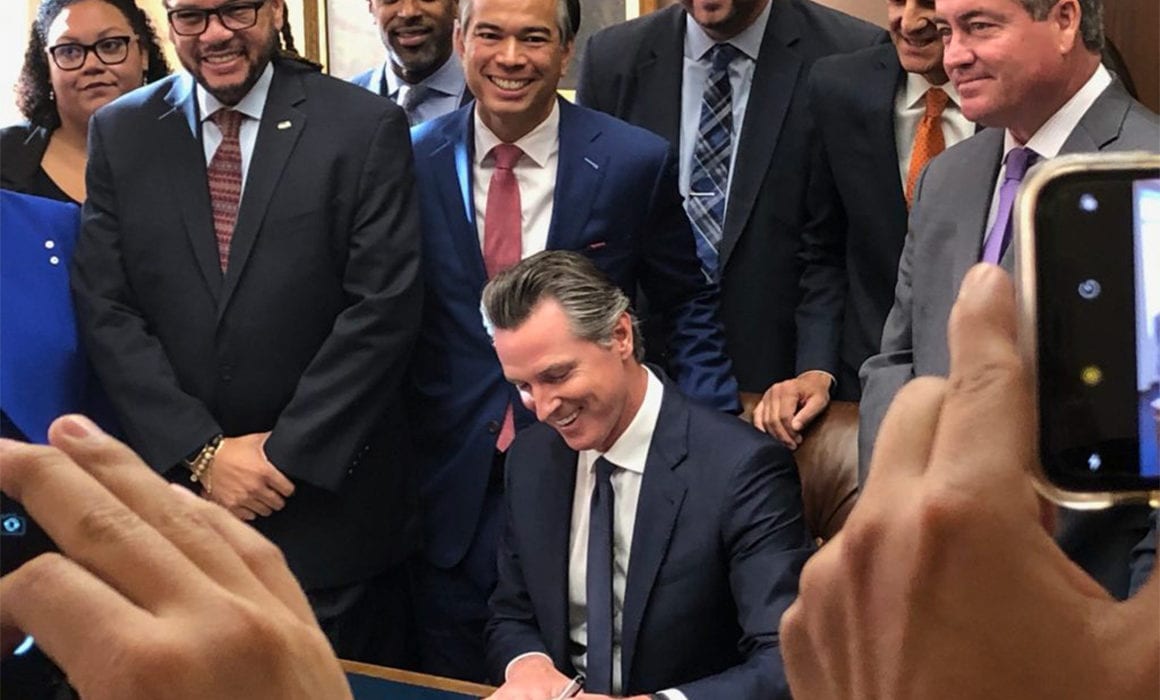
Landmark victory powered by dedication and advocacy of CTA members
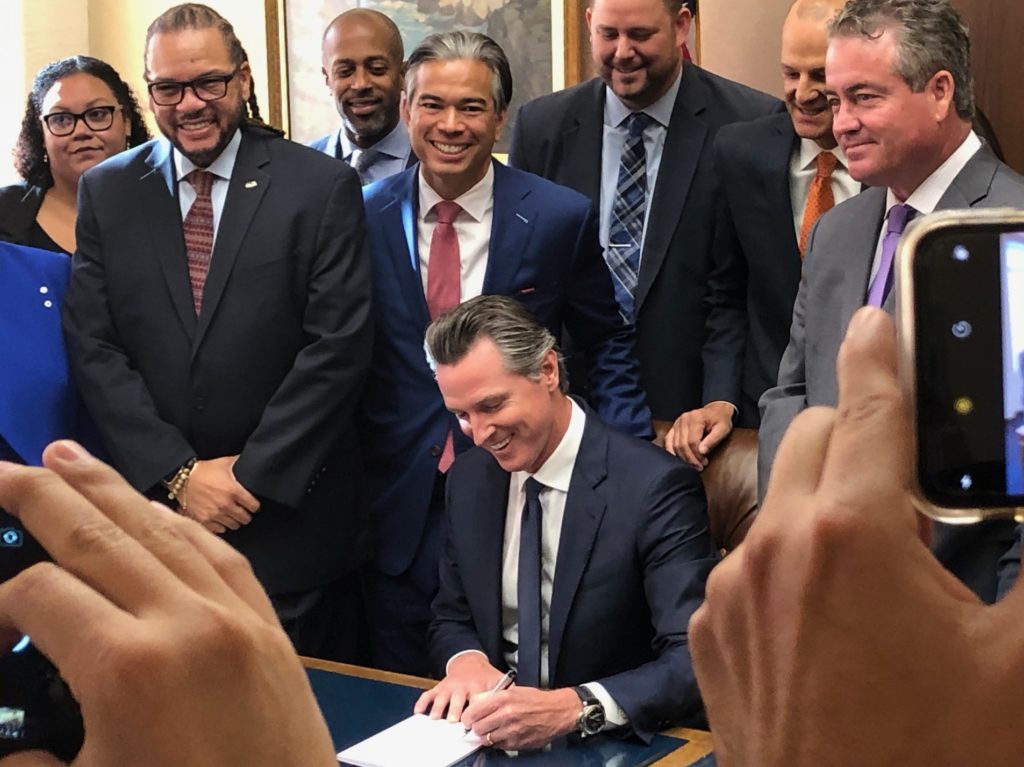
All California students won today when Gov. Gavin Newsom historically signed AB 1505 (O’Donnell) into law, bringing much-needed accountability and transparency to privately managed charter schools. Along with AB 1507 (Smith), the two new laws are the first changes to charter school regulations in 27 years.
Speaking alongside the Governor, CTA President E. Toby Boyd said, “Today is a good day for the 6.4 million students of California! We’re making monumental changes to improve California’s outdated and broken charter school laws.”
The stroke of the governor’s pen caps a herculean effort that saw CTA members across California stand united with our partners in labor, parents and community groups to fix the outdated and broken charter laws that have impacted local districts, neighborhood schools and their students and families for 27 years. For seven months, CTA members visited elected legislators at the State Capitol and in their district offices — more than 225 visits with Assembly members and 175 visits with state Senators — to share their charter school experiences and urge lawmakers to support the CTA-sponsored legislation, which included three other charter school bills: AB 1506, AB 1507 and SB 756.
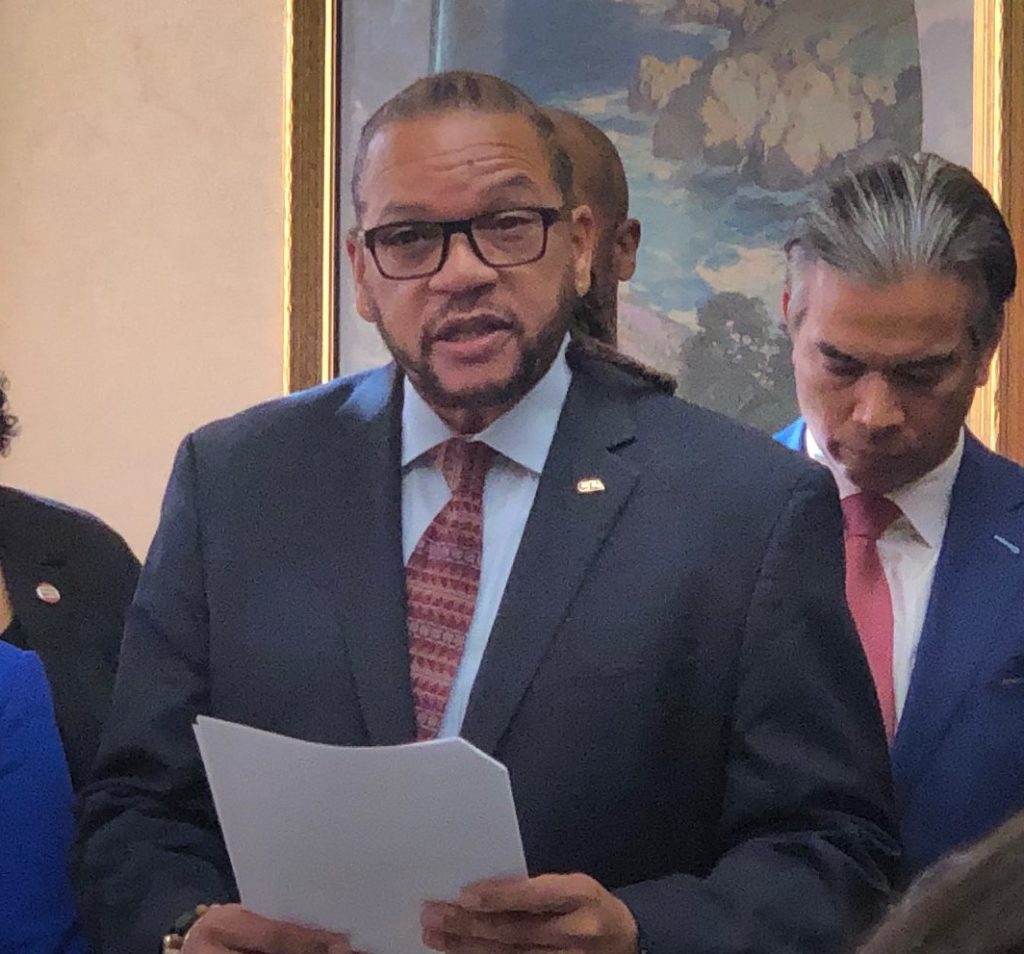
“This would not have happened without the pressure from the Los Angeles and Oakland strikes, and the unrelenting advocacy of CTA members across the state,” Boyd said. “This is the first time in 27 years we’ve had any significant regulation on the charter school industry in California. This will go a long way in changing the landscape of public education in our state and putting control back into the hands of those closest to students.”
The increased scrutiny provided in these new laws is intended to curb the rampant waste, fraud and abuse of tax dollars by the charter school industry. This accountability helps not only students and parents but also CTA members who work in charter schools, ensuring public funds are used to support students and fairly pay educators — not pad the pockets of charter school administrators. The signing into law of AB 1505 and 1507 is a loud statement that California public education is about #KidsNotProfits.
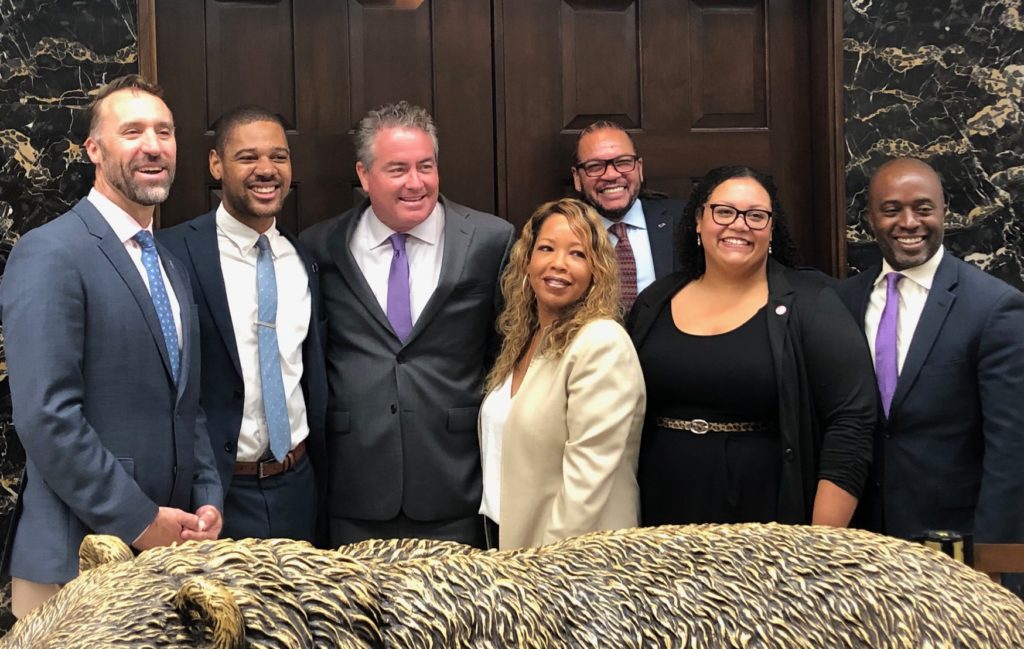
Key elements of the landmark charter laws include:
- Charter schools can now only be authorized by the local school districts where they want to open. Charter schools authorized by the State Board of Education will be transitioned to oversight by their local school districts.
- Local school districts can now consider the fiscal impacts of a new charter school on existing neighborhood public schools and the community during the authorization process.
- Charter schools must be located within the geographic boundaries of the school district that authorizes them. For at least the next two years, they must also have physical locations, with the establishment of a moratorium on non-classroom-based charter schools while the state considers how to reform the “virtual school” sector.
- While charter school operators can still appeal to county school boards, appeals to the State Board of Education are now limited to cases where the local or county school boards are alleged to have “abused their discretion” as authorizing agencies. This is a huge win for local control—the state board has often been considered a rubber-stamp for privately managed charter schools, routinely overturning the decisions and rejecting the wishes of locally elected school boards. Now, the state board will only be involved in rare instances.
- All charter school teachers will now be required to clear a state-level background check and possess a full credential for their assignment.
“This is the most comprehensive reform in close to 30 years,” said Newsom after signing the bills. “We are making a difference for millions and millions of kids.”
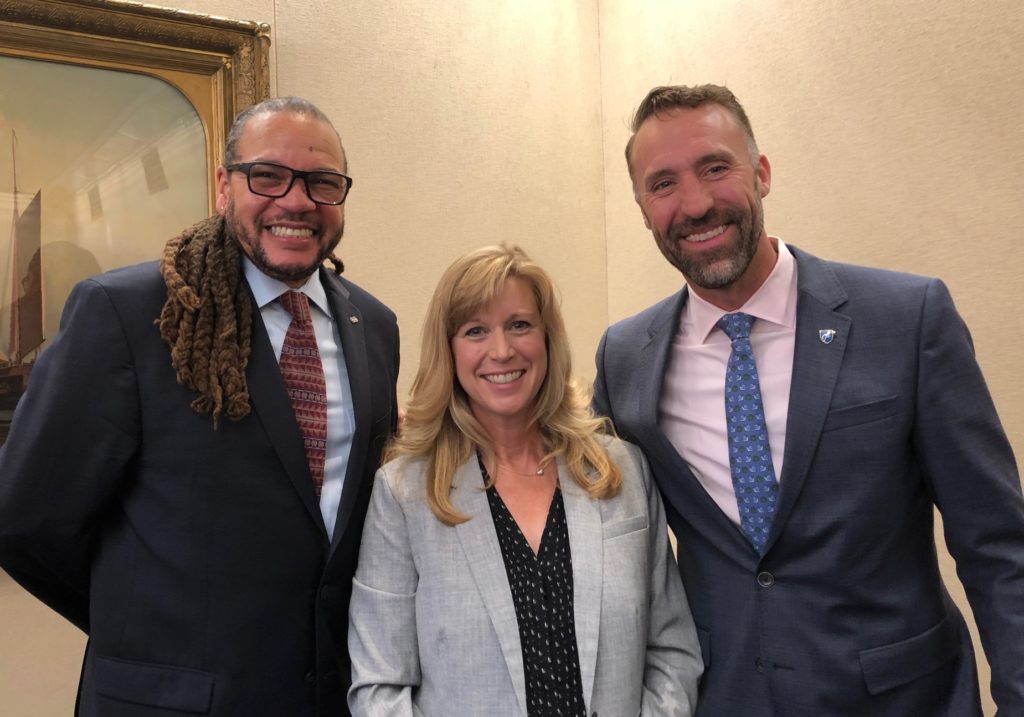
CTA advocacy, dedication fuels monumental win
The strength and motivation of CTA members across the state kept the bills moving through the legislative process, despite organized (and deep-pocketed) opposition from the charter school industry. In addition to the in-person advocacy with elected officials, CTA educators and allies took part in widespread digital lobbying efforts, promoting the charter bills on social media and sending emails to their elected representatives urging them to support #KidsNotProfits — more than 1,300 during the legislative campaign. And in May, thousands of educators converged on Sacramento, marching in the streets and lifting their voices together in the halls of the Capitol on CTA’s #RedForEd Day of Action — singing and chanting so loud that they could be heard on the floor of the Assembly, where lawmakers were voting on AB 1505. For what seemed like hours, the vote tally stalled just short of the threshold needed for approval before the last few “aye” votes trickled in, sending the bill through and the crowd outside into elation.
While AB 1505 and 1507 made their way through the Capitol, Superintendent of Public Instruction Tony Thurmond was also convening a statewide Charter School Task Force to examine the impacts of charter schools on local school districts and students, and make recommendations for reforms to the system. In what has been described as often-contentious meetings, CTA Board of Directors member, Charter Task Force member and UTLA educator Erika Jones advocated fiercely for the charter school accountability and transparency necessary to ensure all public school students and schools have the resources they need to succeed.
“I have seen firsthand how our marginalized school communities have been deeply impacted when districts are forced to make difficult decisions and lacked the discretion they needed,” Jones said in June.
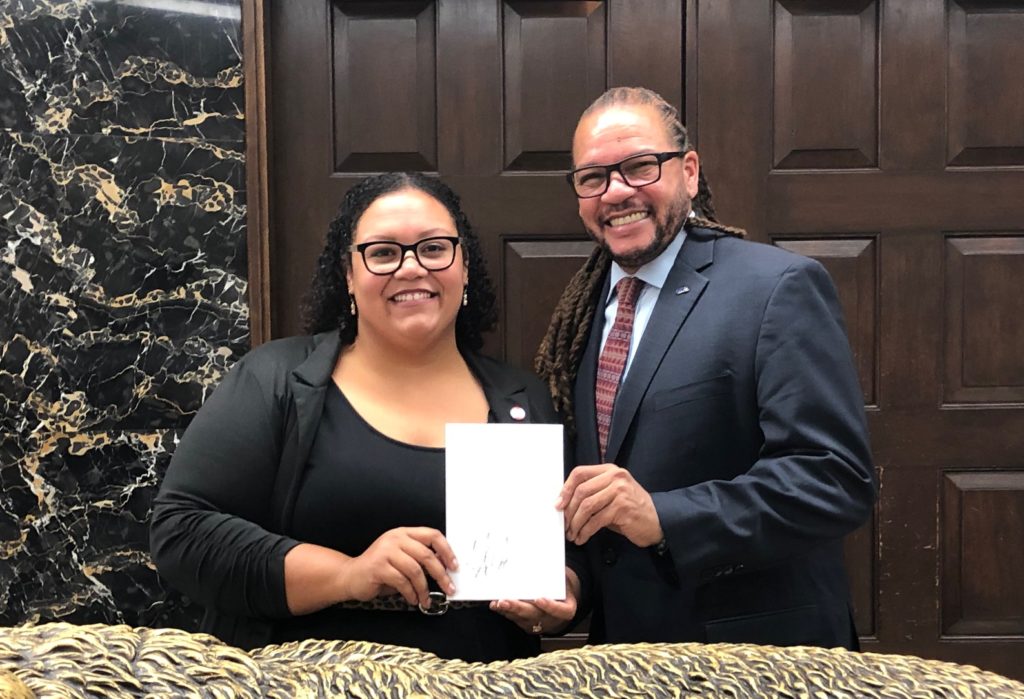
AB 1506 (McCarty), which would cap the number of charter schools allowed in the state, and SB 756 (Durazo), which would establish a five-year moratorium on new charter schools, are still up for consideration during the next Legislative Session, which starts after the new year.
The new charter laws will go into effect in 2020.
The Discussion 0 comments Post a Comment